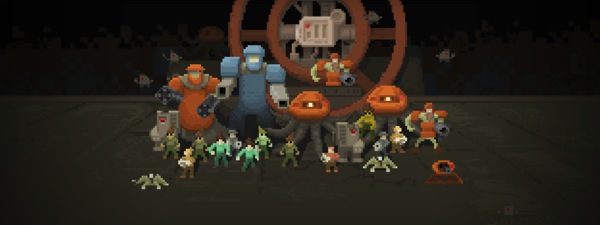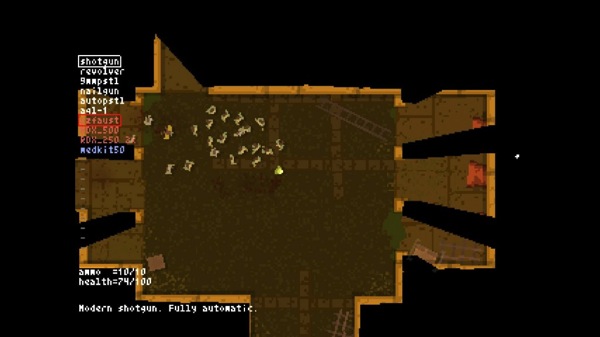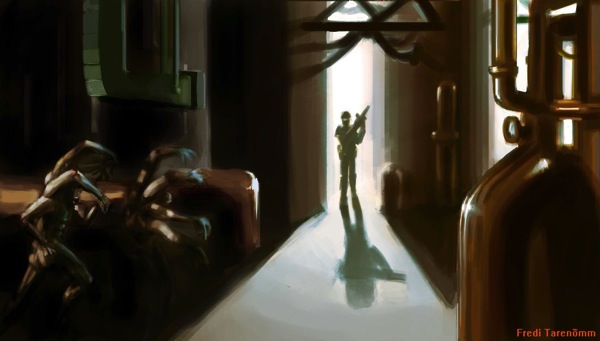
The corridors are a maze that twist this way and that. The bombs you had spent a few minutes creating barely put a dent in the horde of aliens following you, and the pistol you’re carrying has only half a clip left in it. You skid to a stop and take a left, and another right. You have no idea where you are, and the swarm is relentless in its pursuit. Finally, you reach a dead end. Before you have time to react, you’re overwhelmed. You hadn’t even finished the first level.
Such is the nature of Teleglitch, a top down rougelike shooter. If I had to sell it to you, I’d describe it as a mixture of Hotline Miami and Quake, with the atmosphere of System Shock peppered onto it for added flavor.
Death is a given, in Telelglitch, as with any other rougelike. And like with other rougelikes, each death will be a learning experience. What sets apart Teleglitch from its perma-death brethren is its frantic combat. Every battle is life or death, and could end in an instant, every bullet shakes the screen as if to punctuate its damage, as well as its scarcity, what with bullets being this game’s equivalent to gold. This is in contrast to more traditional rougelikes – where each step is measured and calculated in those games, meaning you can stop for a breather, Teleglitch requires machine-like concentration and coordination. Any misstep could send your progress back by 20 minutes, to 2 hours, depending on how well (and lucky), you’re doing.

If you find yourself nodding along to the words above, and perhaps even going over to other sites to get more info on Teleglitch, you’re probably familiar with the rougelike genre. To anyone else, this probably sounds, to put it lightly, incredibly un-fun. And honestly, if someone asked me why I liked games that punished me for failing so brutally, I’d probably stutter for a second.
Why do people like rougelikes? Before Teleglitch, I had a few other roguelikes under my sleeve – Spelunky, Rogue Legacy, Nethack, Receiver. All games that were excruciatingly hard and uncompromising. All of them I kept going back to until I had beaten them.
The question of why I enjoy rougelikes may be similar to asking why someone loves to gamble. Perhaps its the risk and reward of knowing that one more step could lead to a massive pile of loot, or a quick loss of life. The further you go, the higher the stakes go. It’s hard to back down from something like that.
Then there’s the fact that each playthrough is a learning experience. It’s dependent on your philosophical view: You can view a loss as a waste of time, or as a way to realize things like, “don’t use the nailbomb in such close quarters”, or, “the Archmage isn’t a good class to choose when going against this boss”, or even “okay, so spikes kill you instantly…shit.”
I’m a sucker for self-improvement, and that stays true both within and outside of the game world. The joy of finally getting to that safe-house, finally beating that boss, finally completing the game…it’s something you don’t forget.
And thus, I will keep on trucking through this Alien hell of mine. One death at a time.




